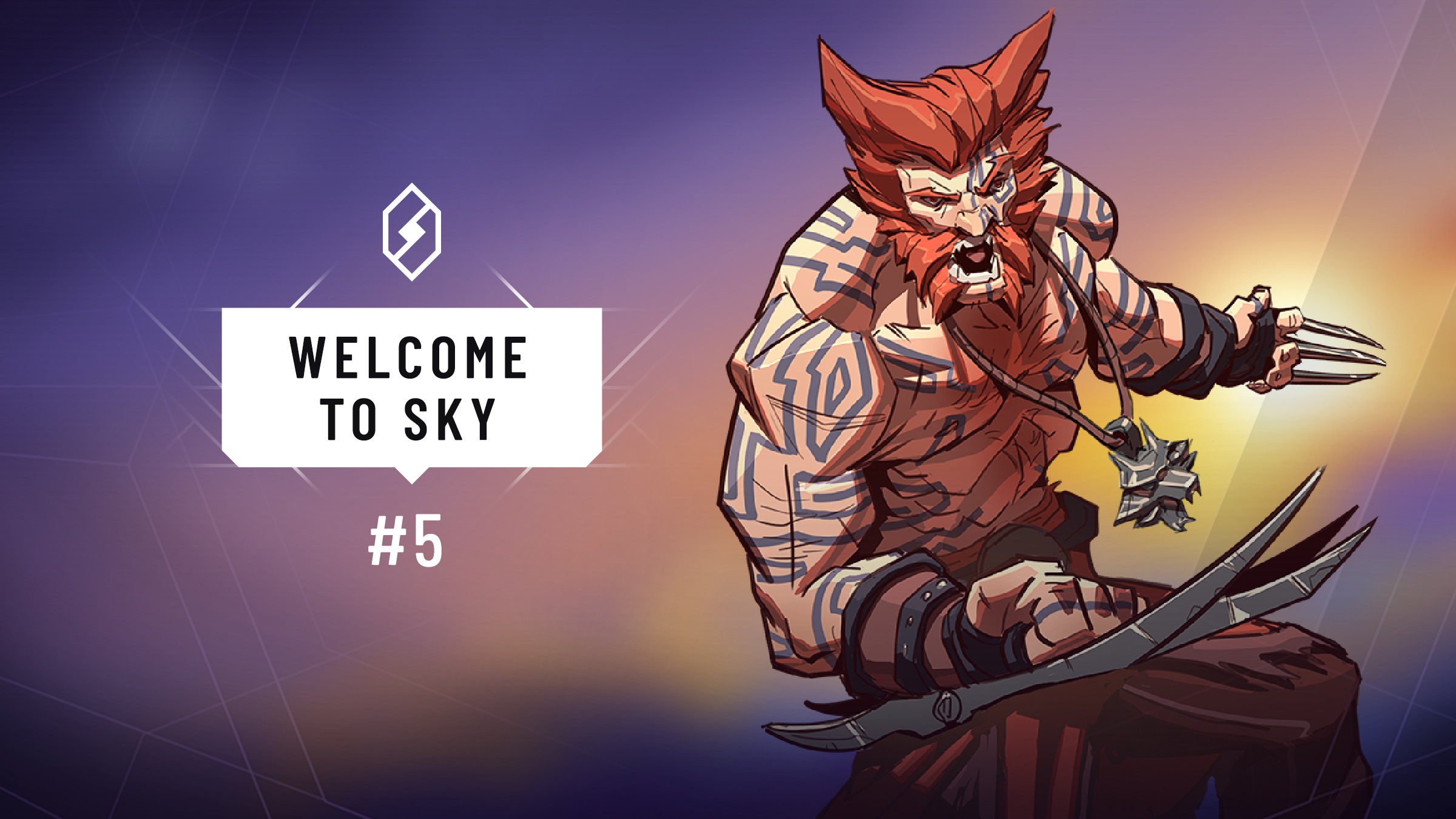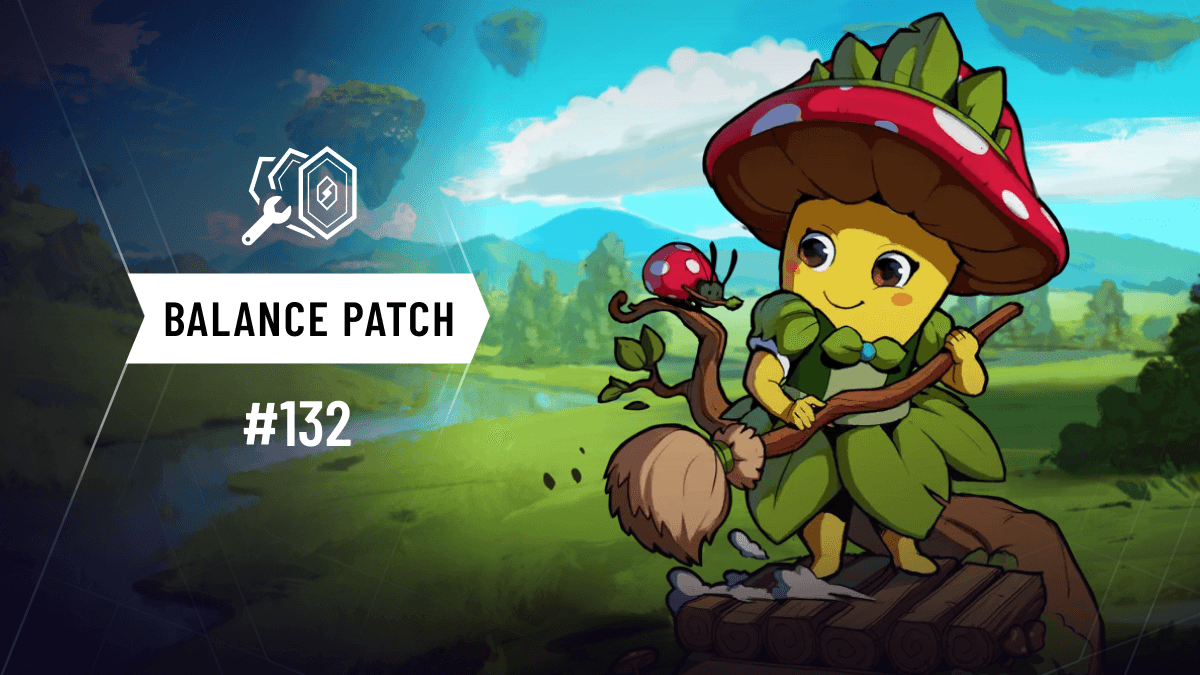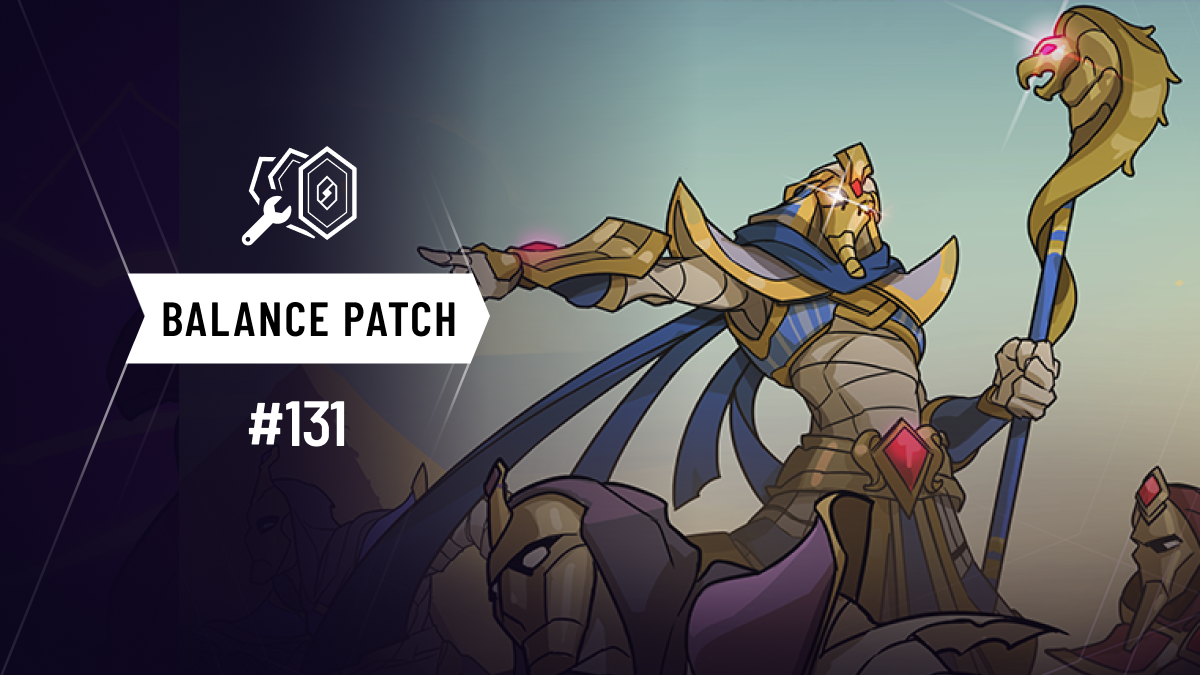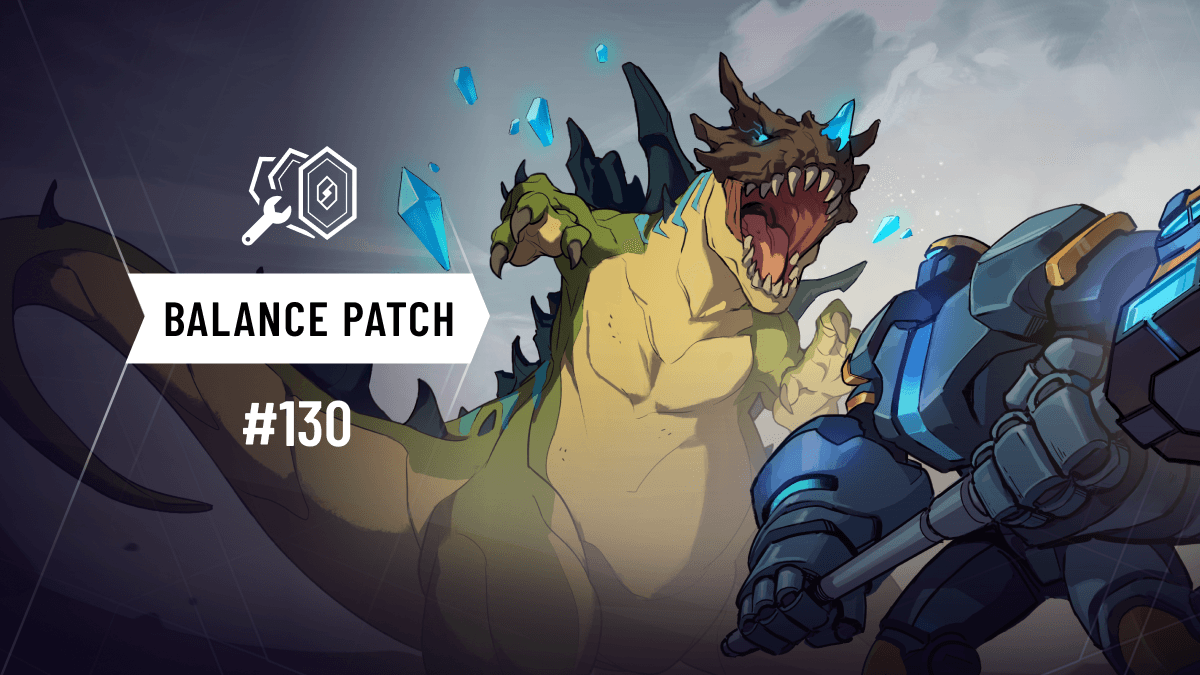Welcome to Sky #5: Prisms

A core component of SkyWeaver’s game design and deckbuilding is its “Prism” system. Within SkyWeaver, there are five Prisms that you can build your deck from - Strength, Wisdom, Heart, Agility, and Intellect!
A deck can include one or two Prisms, which define the cards it can use. Every card you can put into your deck in SkyWeaver is tied to one of the Prisms, and a deck can only contain cards from the Prisms that compose it.
Post 1 - The Basics of SkyWeaver
Post 2 - Player Actions
Post 3 - Keywords
Post 4 - Enchantments
Post 5 - Prisms
Post 6 - Discovery Mode
Post 7 - Elements of SkyWeaver
Post 8 - Constructed Deckbuilding Part 1
Post 9 - Constructed Deckbuilding Part 2
Post 10 - Top Cards of 2019 Part 1
Post 11 - Top Cards of 2019 Part 2
Post 12 - Top Cards of 2019 Part 3
Post 13 - Introducing Intellect
The Identities of our Prisms
Prisms represent the forces that form the backbone of SkyWeaver’s reality, which SkyWeavers like you call upon to do battle with one another. Prisms provide unique deck building restrictions and challenges. You can’t just put any cards you want in any deck. Rather, you first choose 1-2 Prisms, and from there, your deck can use any cards found within the Prisms it is made up of. Each Prism has its own specialties and strengths that you should consider how to take advantage of when deckbuilding.
Strength

The Strength Prism is straightforward and powerful, focusing on powerful, durable units that can overpower and smash through their opposition, and spells that specialize in buffing those units even further, or dealing damage to clear away foes and overpower them.
Wisdom

The Wisdom Prism specializes in defensive, long-term strategy, featuring many cards that excel at healing, stalling, drawing cards and eliminating large swaths of enemies at once, letting it keep its options open as it develops a long-term gameplan.
Heart

The Heart Prism specializes in manipulating the dead, allowing you to recycle and reuse your units again and again, making it an excellent supporting Prism to others that have key units they want to recycle, or that have synergy with Heart’s cards.
Agility

The Agility Prism specializes in aggression, pressuring opponents with units, spread damage spells, and ways to replenish their own resources. Agility cards often offer some kind of trade off to be used, like discarding cards from the hand or deck, paying life, and so on, emphasizing its live-fast playstyle.
Intellect

Finally, our newest Prism, Intellect specializes in creating complex combinations of cards and strategies that can suddenly overwhelm opponents and flip the game on its head. Intellect cards have a particular affinity for making additional copies of cards, and often have a high level of synergy with Spells.
Now that we’ve learned a bit about each Prism, let's look more into what they mean for you as a player.
Unlocking Prisms and Cards From Prisms
When you start playing SkyWeaver, you’ll be in possession of only one Prism - the Strength Prism, and its hero, Ada. This Prism is optimized for new and beginning players, focusing largely on combat, damage, and durable units. With every level you gain, you'll unlock a new hero and some base cards for their prism, until you have all fifteen heroes at level 15
(Note: that we are still in private beta, and that the levels required to unlock these Prisms, and cards contained in each may change before open beta.)

Whenever you level up, you’ll obtain a card from the Prism(s) of the deck you were playing at the time you leveled up - for example, at the beginning, you will be unlocking just Strength cards, as that is the only Prism you’ll have to play with. Once you unlock the others and start playing with them, you’ll be able to unlock cards from them as well. As a result, if there are specific Prism(s) or cards within them that you want to prioritize unlocking, you can focus on those Prism(s) or cards in particular, by playing games and leveling up while using those Prism(s).

In the beginning, you won't have any cards of your own, but not to worry, you can always play Discovery mode, regardless of how many cards you have. Just choose the Prism(s) you want, and you’ll be given a 25 card deck made from a random assortment of cards from those available in your chosen Prism(s). Your deck will be different each time, offering nearly endless replayability without any need for a big collection. When playing Discovery, you’ll only be paired vs other Discovery players, so you don’t have to worry about facing down an opponent who has the advantage due to owning more cards than you. In Discovery, it's all about individual moment-to-moment skill and strategy (and a little luck). For more in-depth information on Discovery mode, check out our post on it here.

Building Your Own Decks With Prisms
Once you’ve managed to collect some cards via playing Discovery, you can start exploring Constructed deck building, where your choice of Prisms becomes even more pivotal.
When you first start building a deck, you’ll be given the choice of what Prisms you want it to use. A deck can contain up to two Prisms. If you make a single-Prism deck, you will be able to make a deck using up to 20 cards from that Prism to complete it. If you make a dual-Prism deck, you will be able to pick up to 30 cards from between the two Prisms instead, and will have twice the potential card pool to choose from, though your deck’s consistency will be lower, as you’ll have 50% more cards.
If you are lacking enough cards to make a complete deck of 20/30 cards, you can also just include as many as you have, and the remainder of the deck will be automatically filled and randomized each game, in the same manner as a Discovery deck would. This generally leaves you with a slightly weaker deck, but allows you to start experimenting and playing with Constructed decks earlier.
That's as far as we’ll go into Constructed deck building here, as it's a major concept that we cover in our posts on it here (pt.1) and here (pt.2).
Conjuring Cards
If you would ever draw a card during a match of SkyWeaver, and no appropriate card exists within your deck, rather than drawing nothing, your hero will lose one life instead, as a penalty, and then you'll be given a "Conjure" instead of drawing. A Conjure is a special draw action, wherein, rather than drawing from your deck, the game will look to the list of all cards in your Prism instead, and draw you a card from there instead. If no appropriate card exists to Conjure, then you’ll draw nothing, but that seldom occurs.
Conjures generally occur in three scenarios. The first is via cards that always Conjure cards, like Wish Deck, which Conjures two Light cards. when you Conjure in this way, you won't lose life.
The Second time Conjures can occur is when you use a card or effect that wants to draw a card with specific traits, like a Fire card, a Unit that costs 1 mana, a Water Spell, etc. It's common to run out of a specific type of card that meets these criteria, resulting in such an effect instead Conjuring a card from your Prism(s) that meets those criteria.
The second scenario is if your deck is completely empty because all cards that started in it have been drawn (or otherwise removed) at which point every draw you make, including those that have no criteria at all, will be replaced with a Conjure, since your deck contains no cards to draw.
Conjures can sometimes allow you to pull out surprise victories, but don’t rely on them too much. It's generally far more efficient to aim to win before running out of cards, as your strategy will be more reliable. Also remember that every time you Conjure because your deck didn't have a card for you to draw, your Hero will lose 1 health for each Conjure. The strain of having to Conjure over and over is taxing on a SkyWeaver, so watch out!
When playing, it is important to not only consider what cards you chose to put in your deck, but those you didn’t, since you have the potential to draw any card in your Prism(s) if you play right.
A final important note is that within any given game, you can only draw one copy of a given card. Once that card is drawn (or if it started in your deck), any future “from Prism” draw will never draw it again. Each card is “singleton,” whether it started in your deck or not, and you cannot draw more than one copy of it per game.
That's all for this post, check back soon for more SkyWeaver info!
Lethal Puzzle
See if you can figure out how to defeat your opponent using the game state presented below, in just one turn! Solution will be in the next post!
The solution to our last post's lethal puzzle is also right below! Congratulations to everyone who solved it!
To chat with me and the rest of the Horizon Games team & our community, join our Discord server! Subscribe to our subreddit to share your ideas, and follow the SkyWeaver account on Twitter if you just want to say hey!
If you haven't already, be sure to sign up to become a SkyWeaver now and to join our waitlist to be invited into our private beta and check out all these new features for yourself.
Check back here again soon, and to get notified on our latest blog posts, subscribe to our newsletter.

Recent Posts














